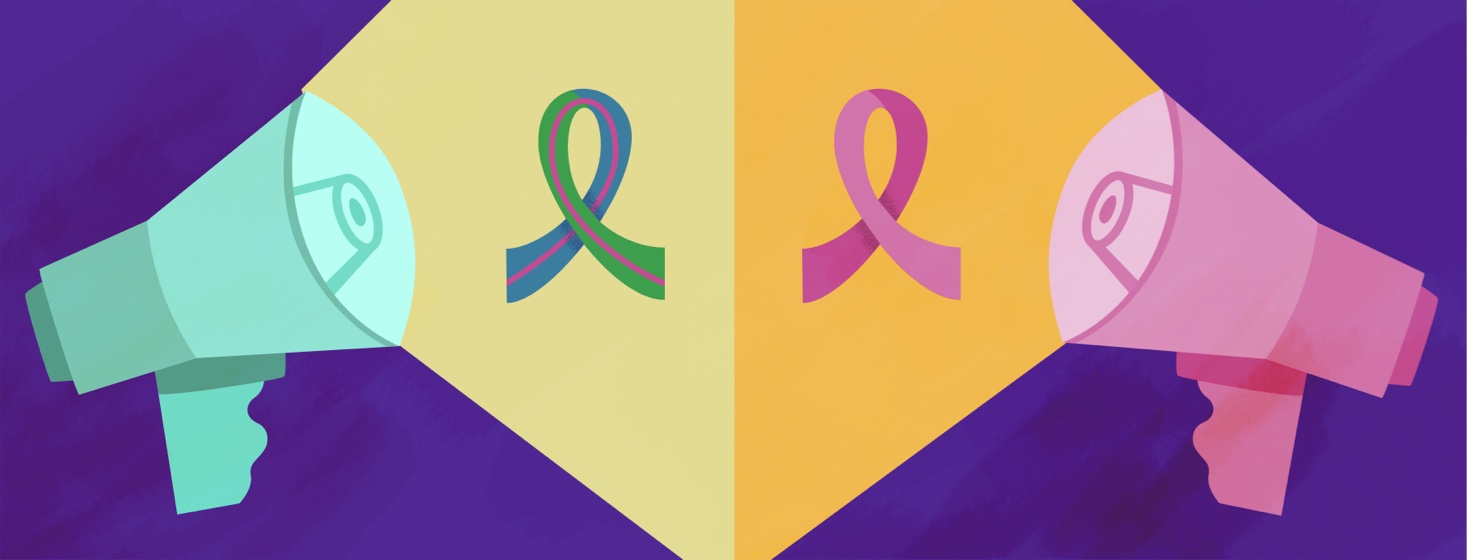Advocating For All Stages of Breast Cancer
Patient advocates living with early-stage breast cancer are often advised to stay in their lane, rather than take up the cause for metastatic patients. At least that was true until recently when influential advanced breast cancer patients and groups began to see the issue of advocacy sustainability as a problem moving forward. Sustainability is an awkward term, but here it is applied to describe the attrition of metastatic breast cancer (MBC) patient advocates, who pass because they’ve run out of lines of treatment. The breast cancer advocate community loses fine advocates all the time.
The odds may be favorable, but there still is not a cure
As a stage III patient working alongside stage IV advocates for eight years now, I regularly come across the common social media meme: 20-30% of people diagnosed with early-stage breast cancer will be re-diagnosed with MBC. I always think, well, that means a 70-80% chance of no regression. Not bad odds. But, as the years rolled by and I lost male and female friends to the disease, I could see that my odds may have been favorable, but without a cure, and having also been treated for aggressive prostate cancer, my prognosis was not so good.
It's the metastatic patients who are the advocacy movers and shakers
It wasn’t long before I got to know many metastatic patients from an active social media and forum presence, from attending training courses and seminars, and annual conferences like the San Antonio Breast Cancer Symposium. It was metastatic patients who were the patient advocacy movers and shakers. Conversely, while many early-stagers tended to be active whilst undergoing initial treatment, they were more often not so afterward. Pretty soon my breast cancer pals were mostly MBC folks. And what an informed and active lot they were.
A different kind of struggle for MBC patients
As a second-generation breast cancer patient, one who lost my mother, aged 40, I’m particularly keen to support younger MBC women who have young kids. Libby, aged 36, posts regularly on Twitter about her stage IV triple-negative breast cancer treatment. She battles to get access to the latest drugs. The mom of a three-year-old, many of her posts express concern for the future of her daughter.
An MBC friend, Abigail Johnson, has written about the divide between early and late-stage breast cancer patients. While noting the obvious differences that each group of patients experience, she notes the “decided lack of empathy and compassion on both sides.” Commenting on the survival meme above, which she rightly notes is often considered shocking to early-stage breast cancer patients, Abigail is empathetic enough to understand the pushback from many of these people who didn’t want to be reminded of their susceptibility to metastasis.
Each patient journey is different, but the need for advocacy is the same
Living Beyond Breast Cancer has been keen to provide trustworthy information to patients and caregivers, recognize the diversity in patient journeys, and foster self-advocacy and hope.
We are all more or less in this together
We all crave hope, it is the corollary of fear, is a natural emotion, and one common to patients of all stages. Whether we like it or not, we are all more or less in this together. As a man with breast cancer, I know this well. Early-stage patients like myself don’t just give practical and moral support; we learn about what might well be our future from MBC folks. But, regardless, we will have the experiences and memories, the advocacy methodology, and the inspiration based on personal relationships to guide us.
Editor's Note: We are extremely saddened to say that on August 31, 2023, Libby Porter passed away. Libby's advocacy efforts continue to reach many. She will be deeply missed.

Join the conversation